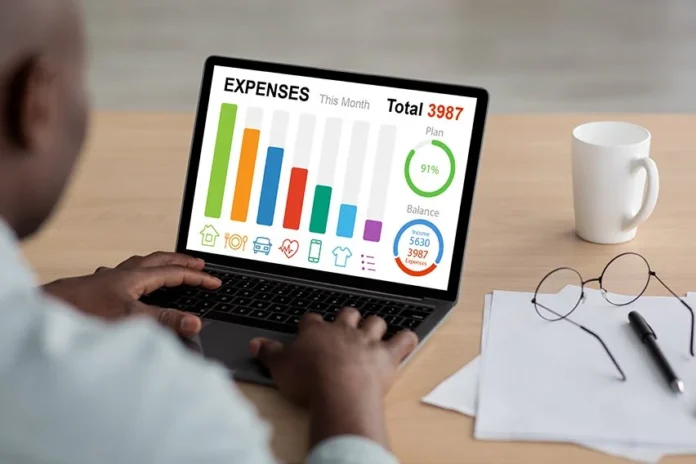Owning and managing property is an exciting venture with the potential for passive income and long-term financial growth. However, effective budgeting and financial management are crucial to the success of your property ownership journey.
Whether you’re a seasoned investor or a first-time property owner, understanding the ins and outs of budgeting and financial management is essential for maximizing your returns and ensuring the sustainability of your investment.
In this comprehensive guide, we’ll take you through the key aspects of budgeting and financial management for property owners. From setting up a budget to optimizing expenses and planning for the future, let’s dive into property management and ownership.
Setting Up a Comprehensive Budget
 Source: pinterest.com
Source: pinterest.com
A well-structured budget serves as the foundation of your property management strategy. It provides a roadmap for allocating resources, covering expenses, and achieving financial goals.
Key Budgeting Steps:
- Income Projection: Calculate your expected rental income based on current market conditions and occupancy rates.
- Expense Estimation: Identify all potential property-related expenses, including mortgage payments, property taxes, insurance, maintenance, and property management fees.
- Emergency Fund: Allocate a portion of your budget to an emergency fund to cover unforeseen repairs or expenses.
- Cash Flow Analysis: Determine your expected cash flow by subtracting expenses from rental income.
A comprehensive budget helps you maintain financial control, make informed decisions, and plan for future investments.
Effective Expense Management
 Source: pinterest.com
Source: pinterest.com
Controlling and optimizing expenses is a crucial aspect of property management. Effective expense management allows you to increase profitability and ensure the long-term financial health of your investment.
Expense Management Strategies:
- Regular Maintenance: Implement a proactive maintenance schedule to prevent costly repairs and extend the lifespan of property assets.
- Vendor Negotiation: Negotiate with contractors, suppliers, and service providers to secure competitive rates for property-related services.
- Energy Efficiency: Invest in energy-efficient upgrades, such as LED lighting, insulation, and smart thermostats, to reduce utility costs.
- Property Management Fees: Evaluate the cost-effectiveness of property management services and ensure they align with the value provided.
By managing expenses strategically, you can optimize your investment’s financial performance.
Income Generation and Tenant Relations
 Source: freepik.com
Source: freepik.com
Maximizing rental income and fostering positive tenant relations are key components of effective financial management.
Income Generation Strategies:
- Market Analysis: Stay informed about market trends to set competitive rental rates that attract and retain tenants.
- Tenant Screening: Implement a thorough screening process to select reliable tenants who meet their financial obligations.
- Rent Collection: Establish clear rent collection procedures, offering convenient payment options for tenants.
- Lease Renewals: Maintain open communication with tenants and consider offering incentives for lease renewals to reduce vacancy rates.
You can maintain a steady cash flow and minimize tenant turnover by focusing on income generation and tenant satisfaction.
Reserve Fund Planning
 Source: pinterest.com
Source: pinterest.com
Creating a reserve fund is essential to long-term financial management for property owners. This fund serves as a safety net to cover unexpected expenses and vacancies.
Reserve Fund Strategies:
- Initial Fund Setup: Allocate a percentage of your rental income to the reserve fund from the start.
- Regular Contributions: Continuously contribute to the reserve fund with each rental income cycle to ensure its growth over time.
- Emergency Fund Use: Use the reserve fund for essential repairs, maintenance, and unexpected vacancies to avoid financial strain.
A well-funded reserve ensures that you can address unforeseen challenges without compromising the financial stability of your investment.
Tax Planning and Legal Compliance
 Source: freepik.com
Source: freepik.com
Understanding the tax implications of property ownership and ensuring legal compliance is critical for effective financial management.
Tax and Compliance Considerations:
- Tax Deductions: Familiarize yourself with tax deductions and credits available to property owners, such as mortgage interest, property taxes, and depreciation.
- 1031 Exchange: Explore the option of a 1031 exchange for deferring capital gains taxes when selling and reinvesting in another property.
- Local Regulations: Stay informed about local property regulations, zoning laws, and rental requirements to avoid legal issues.
Proactive tax planning and legal compliance contribute to a solid financial foundation and minimize potential financial setbacks.
Future Planning and Growth Strategies
 Source: freepik.com
Source: freepik.com
Effective financial management goes beyond day-to-day operations and involves strategic planning for the future and identifying growth opportunities.
Future Planning Steps:
- Portfolio Diversification: Consider expanding your investment portfolio by acquiring additional properties in different locations or property types.
- Market Analysis: Continuously analyze market trends and emerging opportunities to identify potential areas for growth.
- Renovation and Upgrades: Strategically invest in property improvements that increase rental income and property value over time.
- Professional Guidance: Seek advice from financial advisors and property management experts to make informed decisions about portfolio expansion and diversification.
By incorporating future planning and growth strategies, you can capitalize on opportunities and enhance your investment’s financial performance.
Effective budgeting and financial management are the cornerstones of successful property ownership and management. By setting up a comprehensive budget, optimizing expenses, generating rental income, fostering tenant relations, planning for reserves, ensuring tax compliance, and strategically planning for the future, you can achieve your financial goals and build a resilient property investment portfolio. By embracing these financial management strategies, you are well-equipped to navigate the intricate world of property ownership with proper property management to achieve long-term success.




